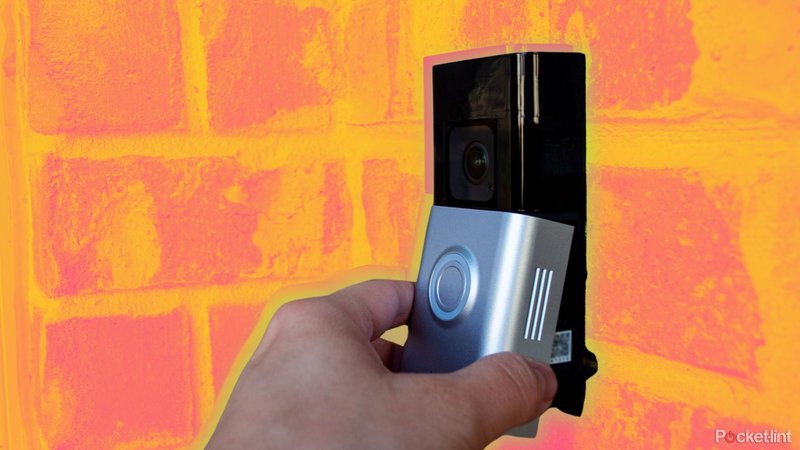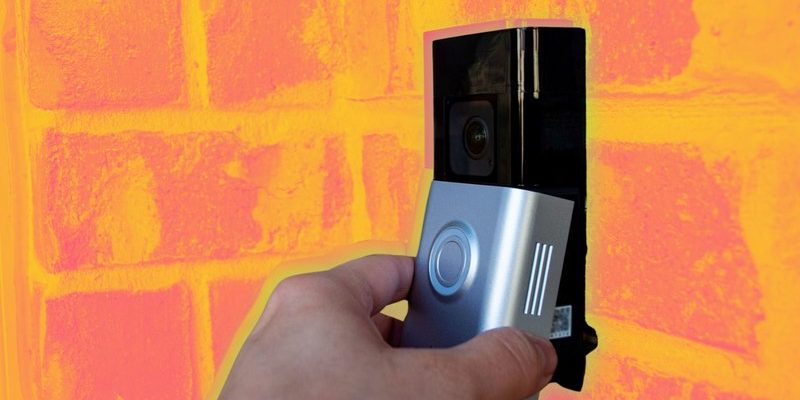
But the world of warranties isn’t always as simple as passing the baton in a relay race. Companies have their own rules, and sometimes they tie those warranties to the original owner—like a password that won’t unlock for anyone else. So let’s break down exactly how Ring handles its warranty, and what it means if you’re about to buy (or sell) a Ring security system.
How Ring’s Warranty Works (And Why This Matters)
Here’s the thing: Ring offers a limited warranty on its security systems. Typically, this means that if you buy a new Ring Alarm, Doorbell, or camera, you’re covered against manufacturing defects or hardware problems for a set period—usually one year from the purchase date. Sounds reassuring, right? But the devil is in the details, and this safety net is spun with some important strings attached.
For everyday users, knowing your device is covered gives you confidence. If your keypad suddenly stops syncing or a motion sensor won’t pair, you’re not left troubleshooting or resetting everything on your own; Ring’s support can step in. That’s huge when your security is on the line. But what actually happens if you’re not the first owner? Do you get the same support as someone who bought straight from Amazon or Best Buy, or are you left to figure it out solo?
Honestly, warranties are full of legal terms and fine print, but let me explain: most companies (including Ring) base warranty coverage on the original purchase and owner. There’s a reason for that—validation and accountability. So before you dive into that online auction or neighborhood yard sale, let’s look at how it plays out for Ring security systems specifically.
Can You Transfer Ring Warranty To A New Owner?
You might be wondering, “If I buy a used Ring Alarm, can I register the warranty to my name?” The short answer: No, Ring’s limited warranty is not transferable to new owners. The warranty lives and dies with the original buyer; it’s tied to the specific person who purchased the device, not just the device itself.
Let me paint a picture: say you find a great deal on a nearly-new Ring security kit. The seller still has the receipt, and there are several months left on the warranty. It makes sense to hope you can just sync your details with Ring, reset the base station, and take over any remaining coverage. But when you try to register or claim service, Ring’s support will ask for proof you’re the original purchaser. If you’re not, you’re basically locked out of warranty repairs or replacements, even if you have the code, battery, and all the accessories lined up.
There’s an exception with extended protection plans (think Ring Protect Plus), but those are subscription-based and don’t usually cover hardware repairs beyond the original warranty period. Bottom line: if you’re not buying new, don’t count on warranty coverage, even if the device still “should” be under protection.
Why Do Companies Make Warranties Non-Transferable?
Let’s be real—this policy can feel frustrating. Why shouldn’t the warranty just follow the product, like its serial number or charging cable? Here’s why companies, including Ring, take this stance:
- Prevents fraudulent claims: If anyone with a used device could claim warranty service, there’d be a lot of accidental (or not-so-accidental) abuse of the system.
- Tracks quality control: Manufacturers want to link hardware issues back to specific production runs or purchase dates, which is tough if products constantly change hands.
- Ensures proper troubleshooting: The original owner usually has the account info, receipt, and correct setup history, making it easier to diagnose real issues with pairing, code errors, or battery faults.
Honestly, it’s not just about stinginess—it’s about managing risk, costs, and support efficiency on their end.
If you’re a buyer, that means you’ll need to weigh the lack of warranty support against any savings from buying used. If you’re a seller, it’s good etiquette to explain this to buyers upfront.
What If You Want to Sell Your Ring Security System?
Let me explain how selling a Ring security device works, because it’s a little more involved than, say, passing along a remote control. First, you’ll need to remove the device from your Ring account—think of it like “factory resetting” your phone. This ensures your email, home location, and sync data are wiped, so the new owner can set up everything fresh.
Here’s what you should do before handing over a Ring system:
- Unpair all devices from your Ring app (base station, sensors, keypad, etc.)
- Reset the system so it’s ready for the new owner (follow the Ring website’s step-by-step)
- Let the buyer know about the warranty status—be honest that it won’t transfer
- Include all accessories (cables, batteries, mounting hardware, manuals)
If you’re the buyer, check that you get everything you need for a complete install, and be ready to pair and sync each component with your own Ring account. Just remember: support for troubleshooting is available, but warranty service isn’t.
Alternatives: What To Do If You Don’t Have Warranty Coverage
Alright, let’s say you bought a used Ring system—or your original warranty just ran out. All hope isn’t lost. Here’s how you can keep your system running smoothly, even if you’re flying solo.
- Use troubleshooting resources: Ring’s website and support team offer tons of guides on how to reset, pair, sync, or replace batteries in your system. You’ll find step-by-step help for just about any glitch.
- Consider a Ring Protect plan: While it won’t cover hardware defects, you do get added support for video recording, professional monitoring, and software help.
- Shop for replacement parts: Ring sells individual sensors, remotes, and accessories online so you can swap out what’s broken without replacing the whole system.
- Reach out to support anyway: Sometimes Ring’s techs will help troubleshoot even if your warranty is up. It’s worth trying before throwing in the towel.
And hey, if you become a Ring superfan, you can always invest in new gear next time to get the full warranty experience. It’s a tradeoff, but you’re not left completely unsupported.
Comparing Universal vs Brand-Specific Security Systems
You might wonder, is this non-transferable warranty thing unique to Ring, or do all brands play by these rules? The answer: it’s pretty common among big-name, brand-specific security systems like ADT, SimpliSafe, and Google Nest. They want to control who uses their products and support channels, especially since “smart” products often need sync codes, remote access, and regular software updates.
Universal or third-party systems sometimes have more flexible warranties, or none at all. But you’ll likely trade off features like advanced troubleshooting, battery replacement, or seamless code resets. If warranty coverage is a big deal for you, buying new from a reputable brand is the safest bet.
Think of it like cars: new gets the full warranty and free roadside help, used means more independence—sometimes at a cost.
So if you’re shopping for a budget security system, weigh these choices:
- Brand-specific (like Ring): Better support, features, and reliability—but warranties rarely transfer.
- Universal/third-party: Lower cost and more flexibility, but usually less support and fewer guarantees.
So, Should You Buy Or Sell a Used Ring Security System?
If you’re still reading, you’re probably weighing whether to go new or used with your Ring system. Here’s my take: buying used can be a smart way to save cash, especially if you’re okay with a little DIY troubleshooting and don’t mind missing out on warranty perks. But if the peace of mind from ironclad coverage matters to you (especially for something as important as home security), shelling out for new might make more sense.
On the selling side, be transparent. Mention the warranty limitations, reset all your devices, and make it as smooth as possible for the buyer to sync their own account. That honesty goes a long way—and avoids any awkward surprises.
Sure, it’d be nice if warranties followed products forever, but that’s just not how brands like Ring play the game. If you understand the tradeoffs, you can still get a lot out of your Ring security setup—even if you aren’t the first name on the receipt.
Final Thoughts: Peace of Mind and Your Ring Warranty
At the end of the day, Ring warranties do not transfer to new owners, no matter how much we might wish they did. That means buying used is a little bit like going off the well-lit path—great deals are possible, but you’re on your own when it comes to hardware repairs. Still, Ring’s troubleshooting support and replacement parts mean you aren’t completely stranded.
When shopping for home security, weigh your options, consider what level of support matters most to you, and make the call that fits your comfort zone. Whether you go with new or used, the key is to stay informed—so your peace of mind isn’t just about what’s happening outside your door, but also what happens if something goes wrong inside your device.
